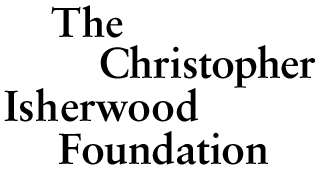Scope and Rationale of Lectures
The Isherwood-Bachardy Lectures are endowed by the Christopher Isherwood Foundation and hosted by the W.M. Keck Foundation Director of Research, Dr. Steve Hindle, at the Huntington Library, Art Collections, and Botanical Gardens. Lectures draw on the holdings of the Huntington Library, including the Christopher Isherwood Papers, which amount to more than 3,000 items.
Lectures may freely address the wider culture in which Isherwood and Bachardy have worked, including literature, visual arts, film and theatre, and the gay liberation movement.
Christopher Isherwood is known as a catalysing figure in the generation of leftist writers who changed English literature in the 1930s; for his life in Berlin during Hitler’s rise; for his travels in Europe, China, Latin America, and the U.S. He is also known for seeking a new, pacifist life in Hollywood during World War II, where he joined the émigré community, wrote for the movie studios, and became a follower of the Indian holy man Ramakrishna and a devotee at the Hollywood Vedanta Society under his direct guru Swami Prabhavananda. He lived openly as a gay man and was among the first major novelists to address homosexuality in writing intended for general literary audiences; during the 1970s, he became an icon of the gay liberation movement. His nine novels include Goodbye to Berlin (1939), on which Cabaret is based and A Single Man (1964), adapted as a film by Tom Ford in 2009; among his memoirs and diaries is Christopher and His Kind (1976), which reveals his previously hidden search for a sexual homeland during the 1930s. Lecturers might address any of these themes, periods, milieus, locales or beliefs, or any of the genres in which Isherwood worked, including novels, plays, screenplays, travel books, autobiographies, memoir, diaries and letters.
The American painter Don Bachardy (b. 1934) paints portraits and nudes from life and, since his early seventies, he has painted abstracts. He studied at Chouinard Art Institute in Los Angeles and the Slade School of Fine Art in London, leading to his first solo shows in London in 1961 and New York in 1962. Since then he has had countless solo and group shows in cities around the world. His work is held in many public and private collections around the world, and he has published his drawings and paintings in numerous books, including Last Drawings of Christopher Isherwood (1990), Stars in My Eyes (2000), Hollywood (2014), and Male Nudes (2017). Together, Isherwood and Bachardy wrote several stage and film scripts, including their award-winning screenplay for the T.V. film “Frankenstein: The True Story” (1973). Lectures might consider Bachardy’s process and his large body of work, his choice of subjects, and the evolution of his technique and style; they might address portraiture and figurative work more generally; they might explore the Venice group with whom Bachardy has been associated since the 1960s and the role of that group in the development of the visual arts in California.
